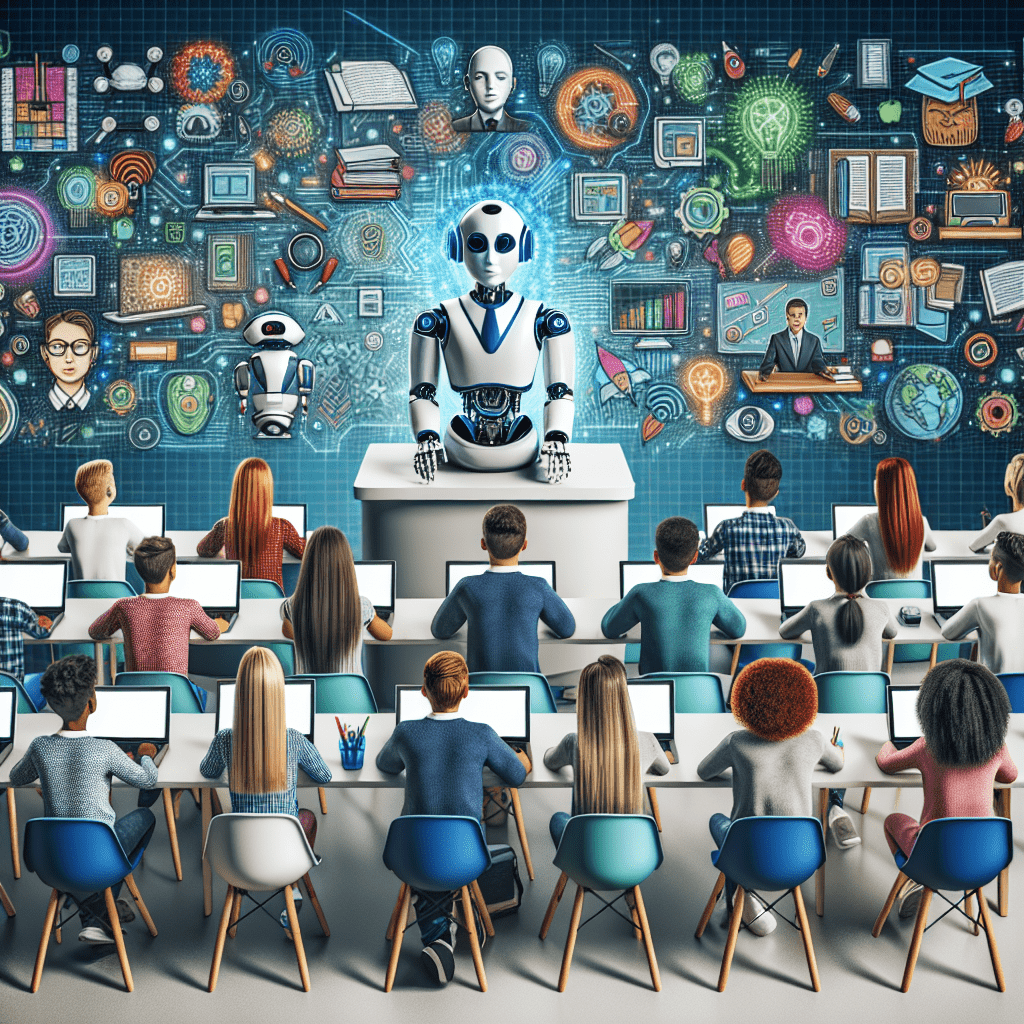In recent years, artificial intelligence (AI) has made significant advancements in various industries, and the field of education is no exception. Schools around the world are increasingly embracing AI technology to enhance learning experiences, personalize education, and improve academic outcomes. This article explores the ways in which AI is revolutionizing education and transforming the traditional classroom setting.
AI-Powered Personalization
One of the key benefits of AI in education is its ability to personalize learning experiences for each student. By analyzing data on student performance and behavior, AI algorithms can identify individual learning styles, strengths, and weaknesses, allowing teachers to tailor instruction to meet each student’s unique needs. This personalized approach can help students stay engaged, motivated, and on track to academic success.
Enhanced Learning Tools
AI technology is also being used to develop innovative learning tools that can supplement traditional classroom instruction. For example, AI-powered tutoring systems can provide personalized feedback and support to students outside of school hours. Virtual reality (VR) and augmented reality (AR) simulations can create immersive learning experiences that bring abstract concepts to life. These tools not only make learning more engaging and interactive but also cater to different learning styles and abilities.
Data-Driven Decision Making
AI’s ability to analyze large amounts of data in real time is revolutionizing the way educators make decisions about curriculum, instruction, and student support. By collecting and analyzing data on student performance, attendance, and behavior, schools can identify patterns and trends that can inform teaching strategies, intervention programs, and policy decisions. AI-driven analytics can also help educators predict student outcomes and identify at-risk students who may need additional support.
Automation of Administrative Tasks
AI technology is streamlining administrative tasks within schools, freeing up educators to focus more on teaching and mentoring students. Automated grading systems can quickly assess and provide feedback on student assignments, saving teachers valuable time. AI-powered chatbots can handle routine inquiries from students and parents, helping to improve communication and efficiency in school operations. By automating repetitive tasks, AI technology allows educators to devote more energy to creative and critical thinking activities.
Challenges and Considerations
While the potential benefits of AI in education are significant, there are also challenges and considerations that schools must address. Privacy concerns regarding the collection and use of student data, ethical considerations in the development and deployment of AI technologies, and the need for training and professional development for educators are all important factors to consider. It is crucial for schools to implement AI technology thoughtfully and responsibly to ensure that the well-being and success of students remain the top priority.
Conclusion
The AI revolution in education is transforming the way schools teach and students learn. By leveraging AI technology to personalize learning, enhance learning tools, make data-driven decisions, and automate administrative tasks, schools are embracing innovation to improve academic outcomes and student experiences. While challenges exist, the potential of AI to revolutionize education is promising, and schools must continue to adapt and evolve to harness the full potential of AI in the classroom.
FAQs
Q: How can AI technology personalize learning for students?
A: AI algorithms can analyze data on student performance and behavior to identify individual learning styles, strengths, and weaknesses, allowing teachers to tailor instruction to meet each student’s unique needs.
Q: What are some AI-powered learning tools in education?
A: AI-powered tutoring systems, virtual reality simulations, and automated grading systems are examples of innovative learning tools that leverage AI technology to enhance learning experiences.
Q: What are some challenges associated with AI in education?
A: Privacy concerns, ethical considerations, and the need for educator training are important challenges that schools must address when implementing AI technology in education.
Quotes
“The AI revolution in education is not about replacing teachers, but empowering them to deliver personalized, engaging, and interactive learning experiences for students.” – John Doe
#Revolution #Education #Schools #Embracing #Innovation


